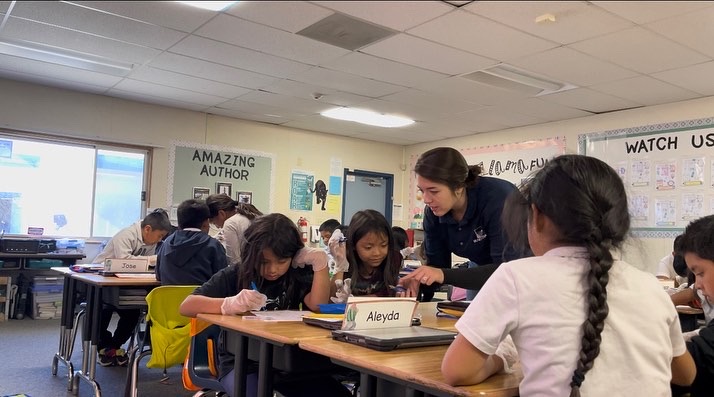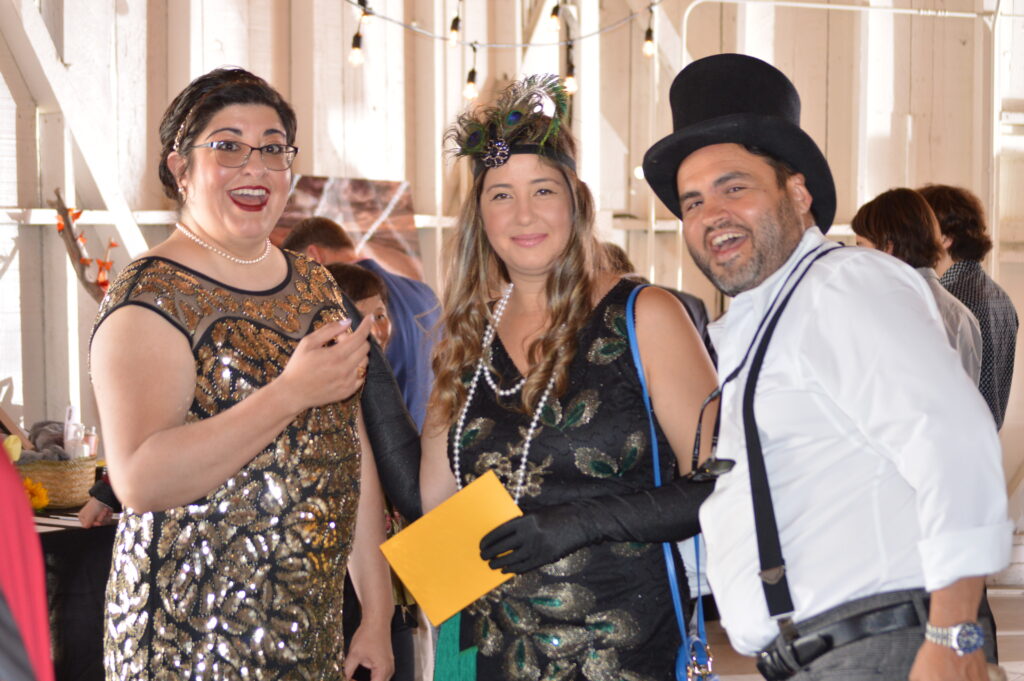
Are you looking for an educational outlet for someone you know? The Dunes Center provides educational programs for a variety of age ranges and grade levels. Programs can be created for an in-class presentation, community group, youth organization, scouts, day camps and service clubs.
We currently offer six programs for your classroom for students K-8th grades.
Mammals – Pelage, Skulls, and Tracks
Birds – Our Feathered Friends
Geology of the Dunes – Learning about the rock cycle and what makes up coastal dunes
Scientific Method – Learning about observations and deductions
Archaeology – The Science of Deciphering the Past
*New* Snowy Plovers – All about the protected little shorebird
*New* Marine Biology - An introduction to the biology of our oceans.
Click here to fill out our program information request form!
Mammals—Pelage, Skulls, and Tracks
Approximate Length: 1 hour
Grades: K-6th
Cost: $165 per classroom (up to 35 students)
Note: 10% discount if you schedule more than 1 module per day.
The objective of this lesson is to familiarize students with local mammals, their diet, field markings, and ecological roles. The instructor accomplishes this through four activities:
- Facilitating a discussion to introduce the term “mammal” and discussing characteristics that make them unique to the animal kingdom.
- Providing a hands-on activity that introduces the students to “study skins” and the adaptive benefits of pelage coloration, from warning colorations to camouflage.
- Providing a hands-on activity that introduces students to “study skulls”. The skull exercise focuses on skull morphology (eye location, dentition) and the implications for influencing predator-prey relationships and diet.
- Introducing students to tracking mammals in the field by learning the animal’s characteristics.
Birds—Our Feathered Friends
Approximate Length: 1 hour
Grades: K-6th
Cost: $165 per classroom (up to 35 students)
Note: 10% discount if you schedule more than 1 module per day.
The objective of this lesson is to familiarize students with local birds, their diet, unique field marks, and ecological roles. The instructor accomplishes this through three activities:
- Facilitating a discussion to introduce the characteristics that make “Birds” unique to the animal kingdom.
- Providing a hands-on activity that introduces the students to “study skulls” and the unique role beak shape plays in their behavior and diet.
- Providing a hands-on activity that introduces students to the unique digestion process of owls through an owl pellet dissection lab activity.
Geology of the Dunes
Approximate Length: 1 hour
Grades: 1st-8th
Cost: $165 per classroom (up to 35 students)
Note: 10% discount if you schedule more than 1 module per day.
The objective of this lesson is to familiarize students with the origin and components that make up our sand in our dunes and local beaches. The lesson introduces the sand’s unique geology and the microhabitat it provides invertebrates. The instructor accomplishes this through three activities:
- Introducing the origin of our dune sand using a Dunes Collaborative produced video about the ecology of the dunes.
- Providing a hands-on activity where students analyze a sample of sand and learn about the component minerals.
- Providing a hands-on activity where students create their own sand dune system and see the effects of wind patterns on the geology of the dunes.
Scientific Method
Approximate Length: 1 hour
Grades: 2nd-8th
Cost: $165 per classroom (up to 35 students)
Note: 10% discount if you schedule more than 1 module per day.
The objective of this lesson is to familiarize students with the components of the scientific method, specifically the development of hypotheses and the role of data collection through various methods of observation.
The instructor accomplishes this through an interactive process that includes introducing students to the concepts of developing a hypothesis and data collection through observations. This exercise includes a hands-on data collection activity that challenges the students to make deductions about sample objects based upon their observations.
Archaeology - The Science of Decoding the Past
Approximate Length: 1 hour
Grades: 1st-8th
Cost: $165 per classroom (up to 35 students)
Note: 10% discount if you schedule more than 1 module per day.
In this lesson students learn about the science of archaeology and how archaeologists use clues in the form of artifacts to piece together the story of past cultures.
The instructor accomplishes this through three activities:
- Introducing the study of past cultures through an inquiry-based presentation.
- Providing a hands-on activity in which students learn about the archaeological process by analyzing various “artifacts” to formulate ideas about past cultures.
- Leading an experiment in mummification designed to teach about experimental archaeologists
Snowy Plover - Why are our shore birds so important?
Approximate Length: 1 hour
Grades: K-8th
Cost: $165 per classroom (up to 35 students)
Note: 10% discount if you schedule more than 1 module per day.
In this lesson students learn about the snowy plover. They learn why they are protected and ways in which they can be a part of the conservation.
The instructor accomplishes this through three activities:
- Introducing snowy plovers, their diet, habitats and nesting habits.
- Opening a discussion with students about the importance of the snowy plover and what we can do to protect them and ensure their populations thrive.
- Creating a craft that highlights the beauty and fragility of the snowy plover.
Marine Biology - Diving into the wildlife of our oceans
Approximate Length: 1 hour
Grades: K-8th
Cost: $165 per classroom (up to 35 students)
Note: 10% discount if you schedule more than 1 module per day.
In this lesson students learn about different sea creatures. Students will get to explore deep sea creatures, fish, marine mammals, and more!
The instructor accomplishes this through three activities:
- Introducing different sea creatures like sharks, octopuses, whales, and others.
- Opening a discussion with students about the importance of the our marine ecology and exploring the differences between sea animals.
- Creating a craft that highlights different sea animals
To learn more about our classroom programs, please contact us at 805.343.2455 or email us at [email protected].
Upcoming Events
Nipomo, 93444 United States
Newsletter
Our newsletter keeps you up to date with the latest information about our exhibits, upcoming events, and programs.


